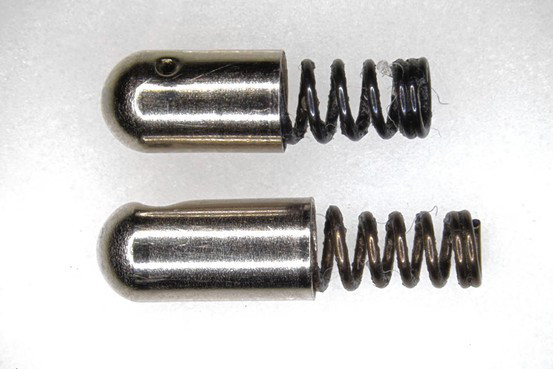GM Knew Of Faulty Ignition Switches In 2001; NHTSA Says “Data Was Inconclusive”
Until last night, it had been believed that the earliest anyone knew of the defective part — which would allow the vehicles’ ignition switches to turn the car off unexpectedly — was 2004, with GM eventually issuing a technical service bulletin to dealerships about the problem in 2005.
However, the Wall Street Journal reports that recently released documents show that the first indications of a defect were discovered back in 2001. A report from that year mentions a problem with the ignition switch in Saturn Ion vehicles that were about to go into production. Another document showed that a service tech observed a stalling problem with the Ion in 2003.
In that case, the tech noted that the Ion’s owner “had several keys on the key ring” and the heavy keychain “worn out the ignition switch.”
GM recently asked drivers of recalled vehicles to have as few keys as possible on their keychains pending the fix for the problem.
Before the disclosure of these documents, the earliest instance cited by GM had been from 2004, when a Chevy Cobalt lost power because the ignition switch turned on its own, disabling the airbags. GM employees were able to replicate the problem but the company determined it would take too long and cost too much to fix the defect.
However, the maker of the part in question tells the Journal that the cost of a replacement for the defective part is between $2-5 and that it can be replaced in a matter of minutes.
Meanwhile, the folks at NHTSA are having to answer for why they did nothing to force GM into a recall, even though one of their inspectors mentioned the problem in a crash investigation seven years ago.
This morning, DOT Secretary Anthony Foxx told a Senate Appropriations Committee the NHTSA is “conducting an ongoing aggressive investigation into the timing of the recall.”
Yesterday, NHTSA Administrator David Friedman placed the blame on GM, saying that if the agency had received “timely information” from the automaker, it could have pushed for a recall at an earlier date.
Foxx admitted that NHTSA had previously opened three special crash investigations into ignition switch problems, but claimed, “The data was inconclusive. It just didn’t point to a formal investigation.”
Meanwhile, it recently came to light that, in addition to the 12 deaths related to the ignition defect, GM had received dozens of consumer complaints about the issue over the years. Rather than issue a recall, the company chose to buy make at least 13 vehicles from unhappy customers.
GM Now Says It Detected Ignition Switch Problem Back in 2001 [WSJ.com]
Transportation secretary: Feds lacked data to investigate GM defects [Detroit News]
Want more consumer news? Visit our parent organization, Consumer Reports, for the latest on scams, recalls, and other consumer issues.


